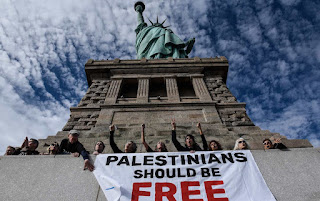“American Democracy: The Dialectical Exchange of the Citizenry in Action”
Written by Ben Bussewitz
[American Pragmatism, Democratic Theory, American Government]
The dialectical exchange of the citizenry in action involves all the citizens, the representatives (who are also classed as equal citizens) and all the people, the many who the people in office represent as they channel their will amongst one another and throughout the socio-symbolic public sphere and in phone calls directly, through petitions, town-hall gatherings, etc. (the tools of democracy) to their representatives who carry forth their will.
With an informed and critical citizenry (paideia) engaged in robust and meaningful democratic exchange (parrhesia), the totality of the polity (demos) can collectively carry out governance (kratos) in the mode of civic genius. Democracy comes from the Greek roots demos, the people, and kratos, govern.
Civic genius is the collaborative, collective democratic undertaking of forging the identity of who we are as a nation, as we the people—establishing with clarity the roots of our ideological creeds, outlining our long and complex shared history, celebrating our melting pot of ethnic and cultural heritages, conscientiously giving testimony to, working through, and mourning our nation’s traumas, determining our nation’s place in the international order, sharing pride in our nation’s virtues and accomplishments while also taking stock of the litany of our nation’s ills and woes... together as a people, engaging in constructive, respectful democratic discourse in which we flesh out and come to a mutual understanding in regards to our nation’s collective consciousness, in which, through inquiry, dialogue, reflection, and debate and compromise where debate and compromise are needed, we shed light on this communal phenomenon of what it means to be a U.S. citizen. The act of civic genius goes even farther than that venture. Through robust, respectful, constructive democratic exchange, we the people, come to identify our predominate values, our top priorities, our most paramount initiatives and endeavors. And we the people determine how we ought to function as a nation, as a cohesive unit, as a living machine of living parts—what kinds of policies we ought to endorse, what type of legislation is appropriate, how we can manage and overcome our nation's problems to ultimately develop into a more safe, prosperous, conscientious, and domestically and internationally responsible nation, how we can blossom in harmony and interconnectedness while learning from and empathizing with our fellow citizens, transforming into more fulfilled, ethical, and well-rounded citizens due to our democratic interactions, and how we can create a more peaceful, peace-oriented, and peace-centered human family, by opening our arms as a peoples to greater global cooperation, collaboration, and community, along with a greater global mentality and ethos, while cultivating more faithful peace of mind. All in all, in partaking in the act of civic genius, we, as a peoples, envision and create what U.S. life and U.S. society ought to entail.
In a nutshell, how democracy theoretically can straightforwardly be understood in the U.S. is a paideia utilizing parrhesia to collectively carry out civic genius.
Mullsay! Mull and then, say. Mull over the article you have read, think about it in deepness and deeply with your pristine heads, your mind will take the time, you think and kind of understand, to think keenly and kindly, all about what I, ben bussewitz, has written, and then you will say, you will state in your beautiful way, your thoughts about the lovely article in this beautiful place Mullsay the Zine, hence Hear Ye. Therefore, please take the time to respond to the following comments, regarding the piece of good artwork you have just read diligently and thoughtful, take the time, to mull and then say, in your good and beautiful way, your creative and well-crafted and totally in your own unique way (as you always embody) your ideas of which respond to the following questions, or your comments that respond to other commenters. The questions (Mullsay, Mullsay!):
Mullsay Dialogue in the Comments of the Blog (The Crafty Chat Engagement Platform that is that Which All the Chatter of Blogosphere)
Below share your thoughts according to the wisdom and insights of participatory democracy.

No comments:
Post a Comment